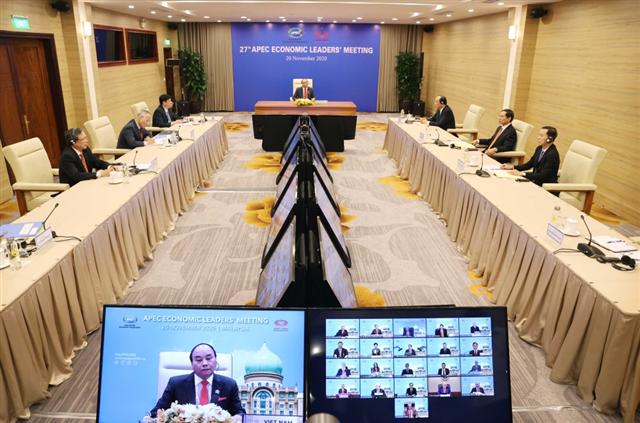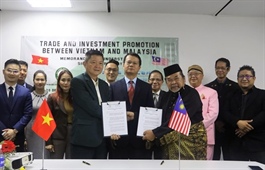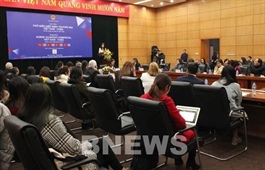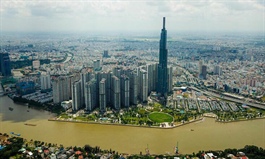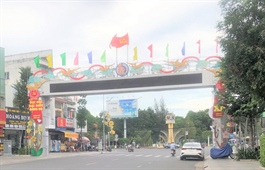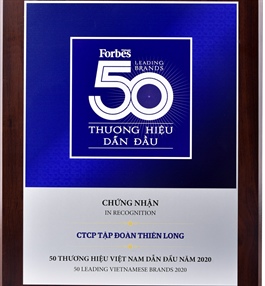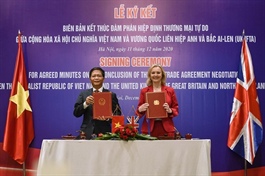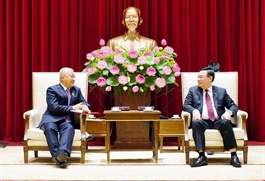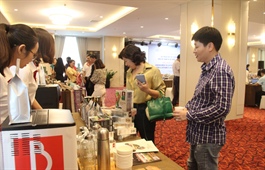Vietnam affirms its global position at APEC
Vietnam affirms its global position at APEC
As the Chair ASEAN for 2020 and a non-permanent member of the United Nations Security Council for 2020-2021, Vietnam’s position at the Asia-Pacific Economic Cooperation (APEC) forum has improved. At the recent 27th APEC Summit, held online, the leaders of 21 member economies adopted the Post-2020 Vision of APEC proposed by Vietnam in the city of Da Nang in 2017.
|
Active cooperation
In November 1998, Vietnam officially became a member of APEC at a Ministerial Meeting held in Malaysia. Since then, Vietnam has played an equal role to world-leading economic centers in building regulations and rules on regional trade. Notably, Vietnam has twice hosted annual APEC meetings, in 2006 and 2017. Its role in initiating and hosting discussions on building a new vision for APEC in the post-2020 period has drawn praise.
This year, Vietnam participated in the APEC forum as the Chair of ASEAN 2020 and a non-permanent member of the United Nations Security Council. It has actively supported and taken the initiative in coordinating tightly with the host, Malaysia, and other APEC members in efforts to maintain cooperation despite the impact of the Covid-19 pandemic. Vietnam has also participated in nearly 100 APEC meetings and conferences in 2020 (both in-person and online), including nine ministerial-level conferences/dialogues.
At the 27th APEC Summit on November 20, the leaders of 21 member economies adopted a Vision to 2040, affirming that APEC will continue to be a leading regional economic cooperation forum in keeping with Vietnam’s post-2020 vision for APEC.
APEC cooperation has presented Vietnam with opportunities to expand its political, economic and social relations in order to bring into play its internal strengths.
APEC 2020: Turning vision into results
The year 2020 marks a significant milestone in APEC cooperation, ending 25 years of implementing the Bogor goals of free and open trade and investment. Also in 2020, APEC discussed many long-term cooperation programs, especially for the next two decades.
The 2020 APEC meetings took place in an unusual context given the Covid-19 pandemic. Countries have to cope with a dual health and economic crisis and its impact on economic development, social security and the environment. Facing common challenges, representatives of APEC member states have adopted the Putrajaya Vision 2040, a new 20-year growth vision to replace the Bogor Goals.
The Putrajaya Vision 2040 is designed to build an open, dynamic, resilient and peaceful Asia-Pacific community for the prosperity of all people and future generations. It will be realized through promoting APEC cooperation for free and open trade and investment, regional economic linkages, comprehensive connections, economic and technical cooperation, creating new impetus for innovation, creativity, digitalization and digital transformation to achieve strong, balanced, safe, sustainable and inclusive growth.
Leading the Vietnamese delegation to the 27th APEC Economic Leaders’ Meeting, Prime Minister Nguyen Xuan Phuc raised strategic proposals to promote APEC cooperation. He proposed APEC coordination in controlling Covid-19, promoting economic linkages, and ensuring supply chains so that the Asia-Pacific region will continue to be a driving force of economic recovery.
PM Phuc emphasized that digital transformation will help enhance APEC’s core values in the era of the Fourth Industrial Revolution. He said APEC should turn the Asia-Pacific region into a creative innovation and technology center by developing digital human resources and promoting connections to narrow the development and digital gap. Promoting sustainable and inclusive development and coping with non-traditional security challenges, especially disease, natural disasters, water resources and climate change should be new pillars of APEC cooperation. APEC needs to support its member states’ development in a smarter, greener and more inclusive manner.
PM Phuc affirmed that Vietnam would continue partnering with APEC member economies to turn its vision and aspirations for peace, stability and happiness of people in the region into reality.


